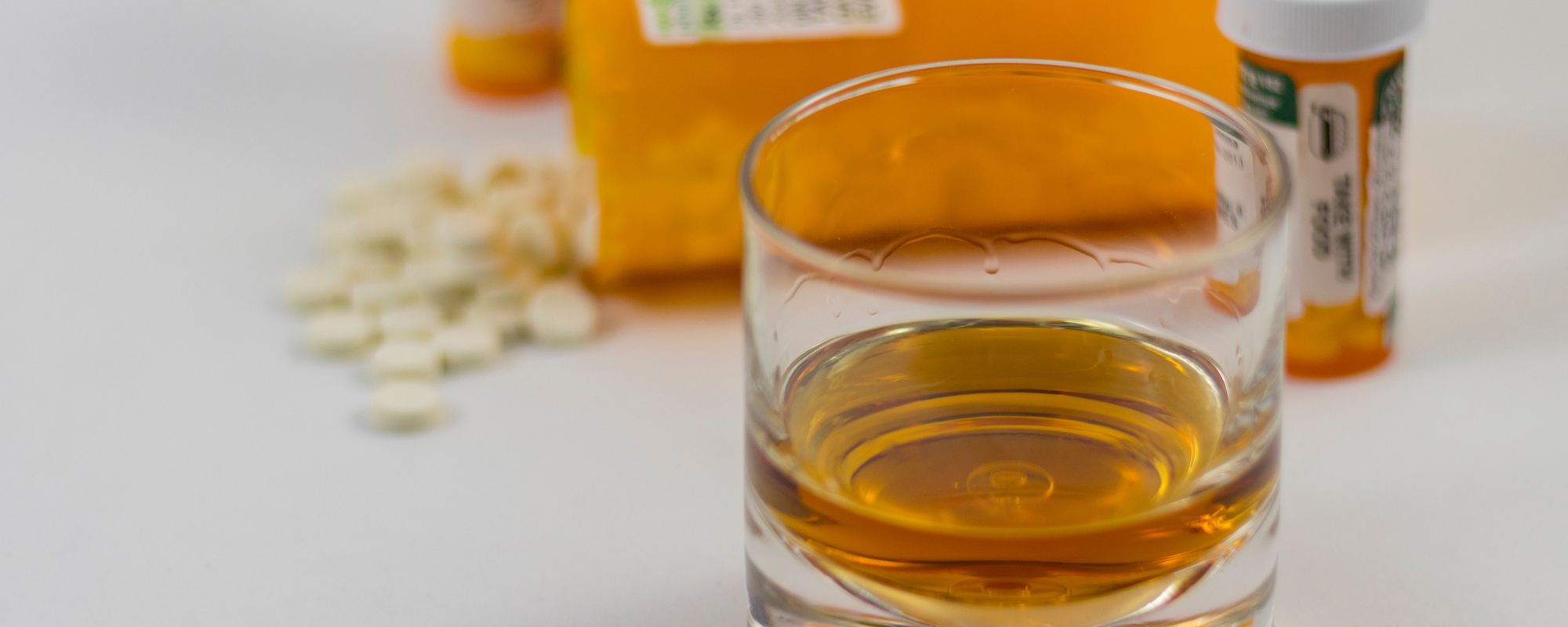Key Takeaways:
Xanax and alcohol are both central nervous system depressants, so combining them amplifies sedative effects and can be extremely dangerous.
Mixing these substances increases the risk of slowed breathing, reduced heart rate, impaired coordination, and overdose, which in severe cases can be fatal.
Signs of mixing Xanax and alcohol include extreme drowsiness, confusion, respiratory depression, blackouts, and loss of consciousness.
Long-term combined use may lead to serious health issues like liver, heart, and brain damage as well as worsening mental health conditions.
Question:
What happens when you mix Xanax and alcohol?
Answer:
The blog explains that mixing Xanax (a benzodiazepine prescribed for anxiety) with alcohol is highly unsafe due to both substances acting as central nervous system depressants, meaning they slow brain activity and vital functions like breathing and heart rate. This combination intensifies sedation far beyond what either would cause alone, significantly raising the risk of dangerous side effects and life-threatening outcomes, including respiratory depression, coma, and death. People may engage in this risky “polysubstance use” for enhanced euphoria or sedation, but doing so unpredictably amplifies each drug’s effects and can lead to accidents, loss of coordination, and impaired judgment. The blog lists common warning signs of this dangerous mix—such as excessive drowsiness, confusion, blackouts, and shallow breathing—and points out that severe cases may involve seizures or cardiac arrest. Beyond immediate impacts, repeated use of both alcohol and Xanax together can contribute to long-term harm like organ damage and worsening mental health. Finally, the article stresses the importance of seeking professional support for substance abuse and polysubstance treatment.
Despite being commonly used substances across the U.S., benzodiazepines and alcohol are often underestimated when it comes to their potential side effects. If you are thinking about mixing Xanax and alcohol, it is important to understand how dangerous this can be.
Royal Life Centers at Cascade Heights offers comprehensive polysubstance abuse treatment. Our treatment program provides the care and dual diagnosis therapy you need to overcome co-occurring Xanax and alcohol abuse.
What Is Xanax?
Xanax is a brand name for the medication alprazolam. It belongs to the drug class known as benzodiazepines. These act as central nervous system depressants, which means they slow down the system.
Xanax is primarily prescribed for anxiety disorders, including generalized anxiety disorder (GAD) and panic disorder. It does this by enhancing the activity of certain neurotransmitters in the brain, promoting feelings of relaxation and calmness.
Side Effects of Xanax
In addition to its calming and sedative effects, Xanax can cause a range of side effects. Each of these can vary in severity depending on the person and situation. Some of the most common Xanax side effects include:
- Drowsiness
- Dizziness
- Impaired coordination
- Lightheadedness
- Fatigue
- Slurred speech
- Memory problems
- Difficulty concentrating
- Headache
- Nausea
- Constipation
- Dry mouth
- Changes in appetite
- Weight changes
- Sexual side effects
- Mood changes
In some cases, this medication can cause more severe side effects. This can include severe allergic reactions, respiratory depression, suicidal thoughts, depression, hallucinations and seizures. If you are experiencing any of these symptoms, it is important to talk to your doctor immediately. They can help you adjust your medication and address any serious issues.
Is Xanax Addictive?
Despite its various medical uses, Xanax does have a high potential for addiction. This is because it is a very potent benzodiazepine with a rapid onset of action. This quick relief from anxiety can be highly reinforcing, making it more likely to be misused. Furthermore, the body can quickly develop tolerance to Xanax.
This means the person will need to take increasingly higher doses to achieve the same effect. Repeatedly taking high doses of Xanax can lead to physical dependence, where the body relies on the drug to function normally. Without continuous access to Xanax, the body may go into shock, causing uncomfortable and potentially dangerous withdrawal symptoms.
Why Do People Mix Xanax and Alcohol?
Mixing Xanax and alcohol is an unfortunately common occurrence in the U.S. People who mix Xanax and alcohol may experience dangerous side effects. The main one is that both Xanax and alcohol are central nervous system depressants. This means that, when combined, their effects are significantly amplified, leading to increased sedation and euphoria.
What Is Polysubstance Abuse?
Polysubstance abuse refers to the use of two or more substances simultaneously or within a short period. Combining substances can lead to unpredictable and potentially life-threatening interactions. This is because the effects of one drug can significantly alter or intensify the effects of another.
Mixing substances can also significantly increase the risk of overdose. This is particularly true when combining depressants like alcohol and opioids. Over time, polysubstance abuse can have severe health consequences, including:
- Liver damage
- Heart problems
- Respiratory problems
- Increased risk of infections
- Mental health issues
What Are the Dangers of Mixing Xanax and Alcohol?
Taking Xanax with alcohol is extremely dangerous. Xanax and alcohol interactions can have serious, even life-threatening, consequences. It is crucial to understand that this combination significantly increases the risk of several side effects.
Depressed Breathing and Heart Rate
Both alcohol and Xanax act as sedatives. When combined, this effect can slow down a person’s respiratory system as well as their heart. This interaction can be extremely dangerous, especially if left untreated. In severe cases, Xanax and alcohol symptoms like these can be fatal.
Impaired Motor Functions
Because both of these substances can depress the system, combining Xanax and alcohol can lead to impaired motor functions. In particular, they can drastically affect a person’s coordination and judgment. This can increase their risk of accidents, such as falls, car crashes, drowning, and more.
Increased Risk of Overdose
When someone takes too high a dose of alcohol, Xanax, or both, this can significantly increase their risk of overdose. An overdose related to one of these substances is already dangerous enough. Mixing these substances in high doses together can quickly become life-threatening. When combined, the effects of alcohol and benzos can lead to respiratory depression, coma, and even death.
Long-Term Consequences of Mixing Xanax and Alcohol
On their own, Xanax and alcohol can already cause long-term consequences to a person’s mental and physical health with chronic use. When combined, repeated abuse of these substances can damage the liver, heart, and brain. They can also lead to worsening depression, anxiety, and other mental health issues.
Addiction
Are you struggling with an addiction to substances like drugs and alcohol?
Royal Life Centers at Cascade Heights Recovery is here to help you recover. Because we care.
What Are the Signs and Symptoms of Someone Mixing Alcohol and Xanax?
Mixing Xanax and alcohol can have serious and potentially life-threatening consequences. This is why it is important to know how to recognize if someone is drinking alcohol while taking Xanax. There are several signs and symptoms that someone may be experiencing the effects of this dangerous combination, including:
- Excessive drowsiness: Difficulty staying awake, feeling extremely sleepy.
- Confusion: Difficulty thinking clearly, disorientation, slurred speech.
- Impaired coordination: Clumsiness, difficulty walking or standing, loss of balance.
- Loss of consciousness: Passing out or falling unconscious.
- Respiratory depression: Slowed or shallow breathing, difficulty breathing.
- Blackouts: Periods of amnesia where the individual has no memory of their actions.
- Nausea and vomiting: Feeling sick to the stomach and vomiting.
- Dizziness and lightheadedness: Feeling faint or unsteady.
- Slurred speech: Difficulty speaking clearly and distinctly.
- Impaired judgment: Poor decision-making, risky behavior.
In more severe cases where someone has been mixing benzos and alcohol, they may experience side effects such as:
- Coma: A state of deep unconsciousness from which the individual cannot be awakened.
- Seizures: Sudden, uncontrolled electrical activity in the brain.
- Cardiac arrest: The sudden cessation of heart function.
Because of how dangerous the effects of Xanax and alcohol can be, it is important to seek professional help as soon as possible if you can recognize any of these signs in you or someone else. Polysubstance abuse is a serious issue, but with the right support, recovery is possible.
Is There Treatment for Xanax and Alcohol Abuse?
While Xanax and alcohol abuse are a serious issue, it is important to know that there is treatment available. Royal Life Centers at Cascade Heights offers a comprehensive recovery approach to polysubstance abuse. We combine traditional, research-based treatments with holistic healing methods, ensuring our clients receive whole-health care.
Xanax and Alcohol Detox in Arizona
Detoxing from Xanax and alcohol is a complex and potentially dangerous process. This is why it should always be done under the supervision of medical professionals. Royal Life Centers at Cascade Heights in Arizona offers comprehensive detox services to those struggling with polysubstance abuse.
Throughout the detox process, you will be provided with 24/7 support and supervision. Through medications, therapies, and holistic interventions, we help you manage your withdrawal symptoms and successfully remove all traces of Xanax and alcohol from the body.
Inpatient Xanax and Alcohol Treatment in Arizona
If you are looking for highly structured treatment, our inpatient program provides the safety and support you need. Residential treatment allows you to overcome your substance abuse without the risk of external distractions or temptations. This can be crucial for your success in treatment, as it minimizes your risk of relapse and other complications.
Our inpatient program consists of several key care components, such as therapy, medication, and holistic interventions. We focus on helping our clients rebuild essential life skills while healing in mind, body, and spirit.
Outpatient Xanax and Alcohol Treatment in Arizona
Our outpatient program can provide the care that those who require flexibility in their treatment approach need. From partial hospitalization to intensive outpatient and traditional outpatient programs, we provide the treatment options you need. Our outpatient programs offer you the opportunity to receive regular support and guidance on your path to recovery without sacrificing your daily responsibilities and routine.
Aftercare and Sober Living in Arizona
When it comes to addiction recovery, this journey does not end after treatment. Sobriety is a life-long commitment, which is why many people seek ongoing support after finishing traditional levels of care.
Royal Life Centers offers aftercare and sober living options to help our clients re-adjust to independent sober living. From recovery support groups to ongoing therapy and medication management, we help you maintain your sobriety in the long run.
Polysubstance Abuse Treatment at Royal Life Centers
If you or a loved one is struggling with polysubstance abuse, it is important to know that you are not alone and help is available. Royal Life Centers offers comprehensive and compassionate care. We provide the support you need to achieve lasting recovery.
When seeking treatment for a polysubstance addiction, you will have several levels of care to choose from, including:
- Medical Detox
- Residential Inpatient Program
- Partial Hospitalization Program (PHP)
- Intensive Outpatient Program (IOP)
- Outpatient Program
- Sober Living
Because addiction is a unique disease, we prioritize providing you with an individualized treatment plan. This ensures you receive the personalized care necessary to achieve lasting sobriety. If you are ready to get started on the path to recovery, reach out to learn more about how we can help you today.







